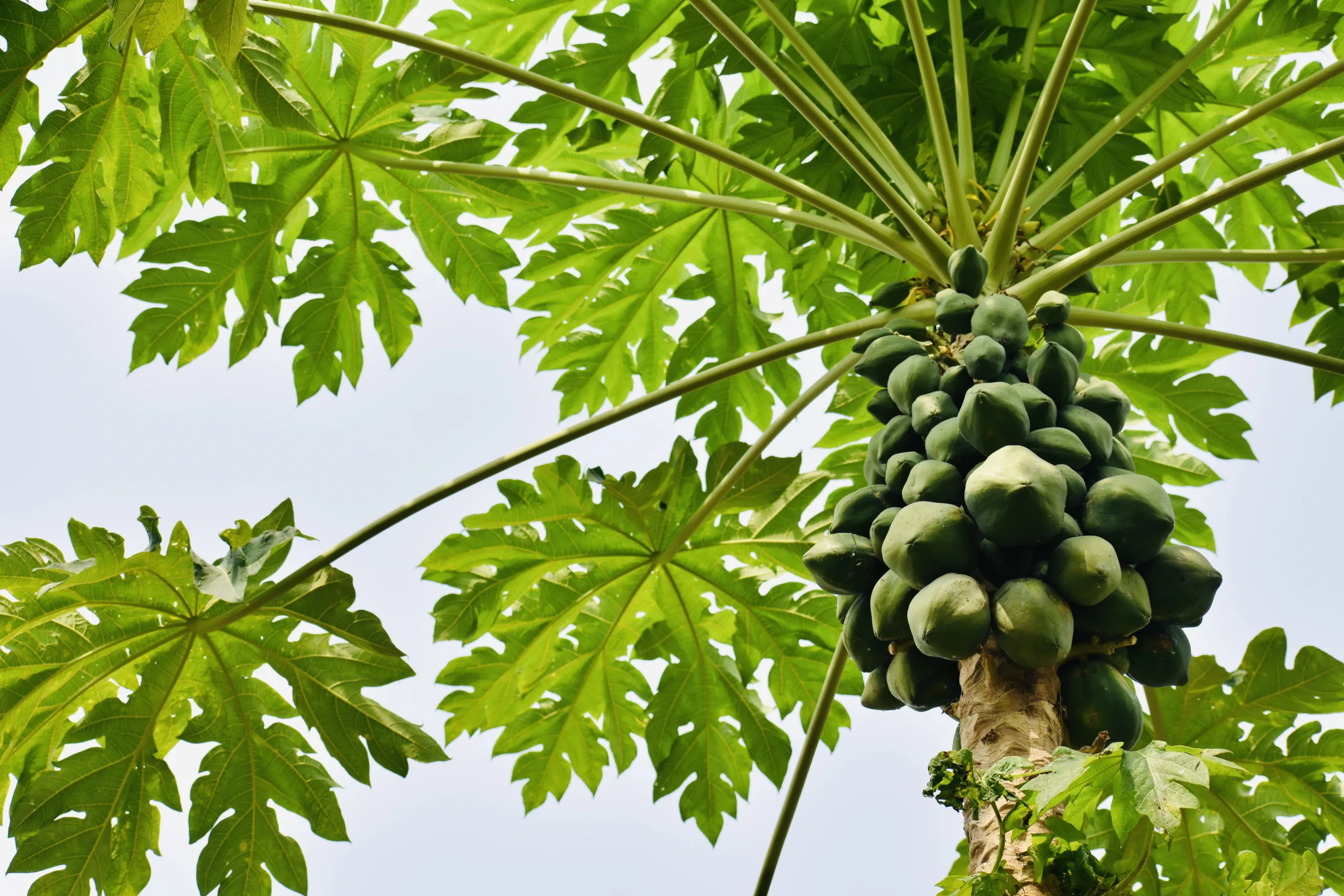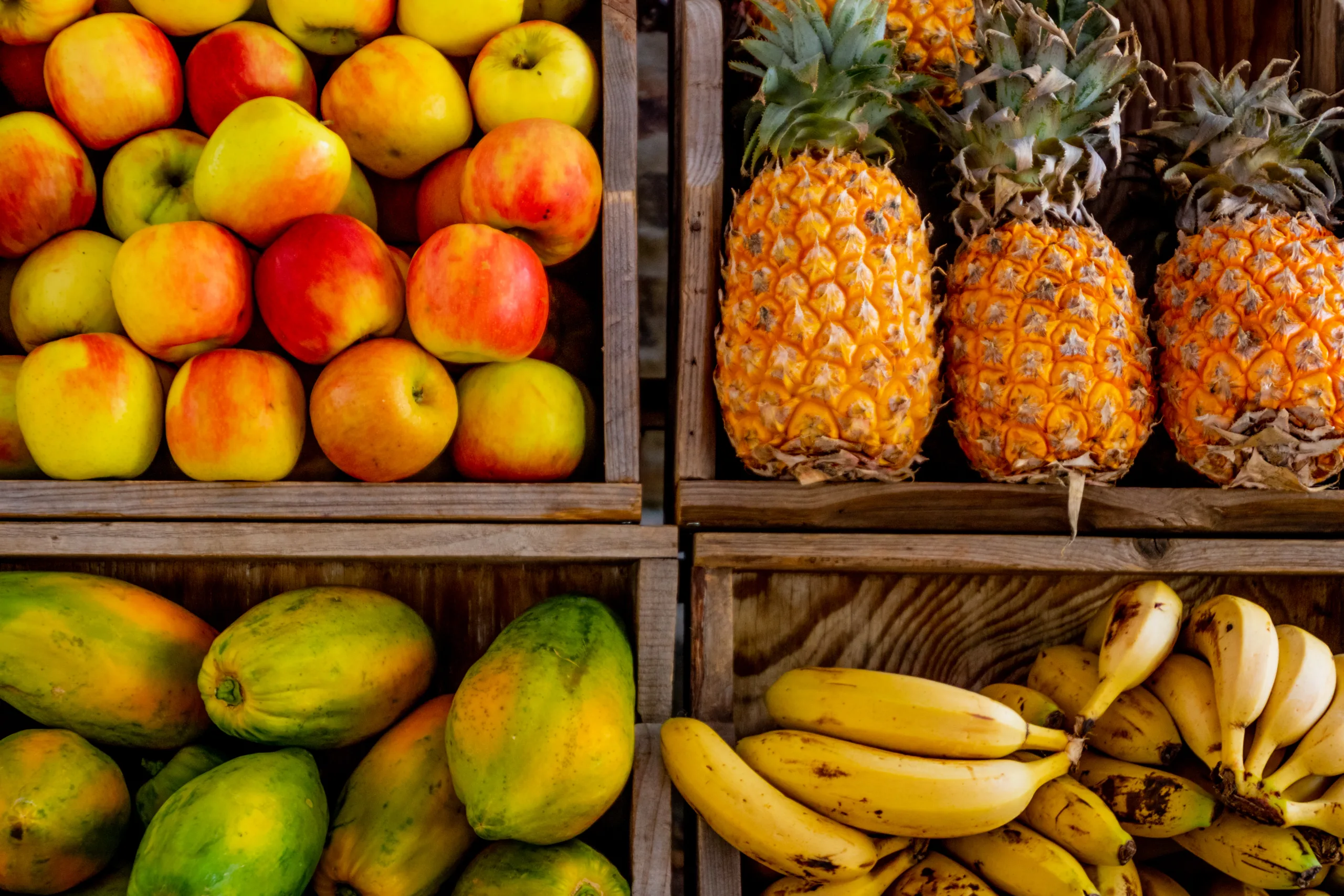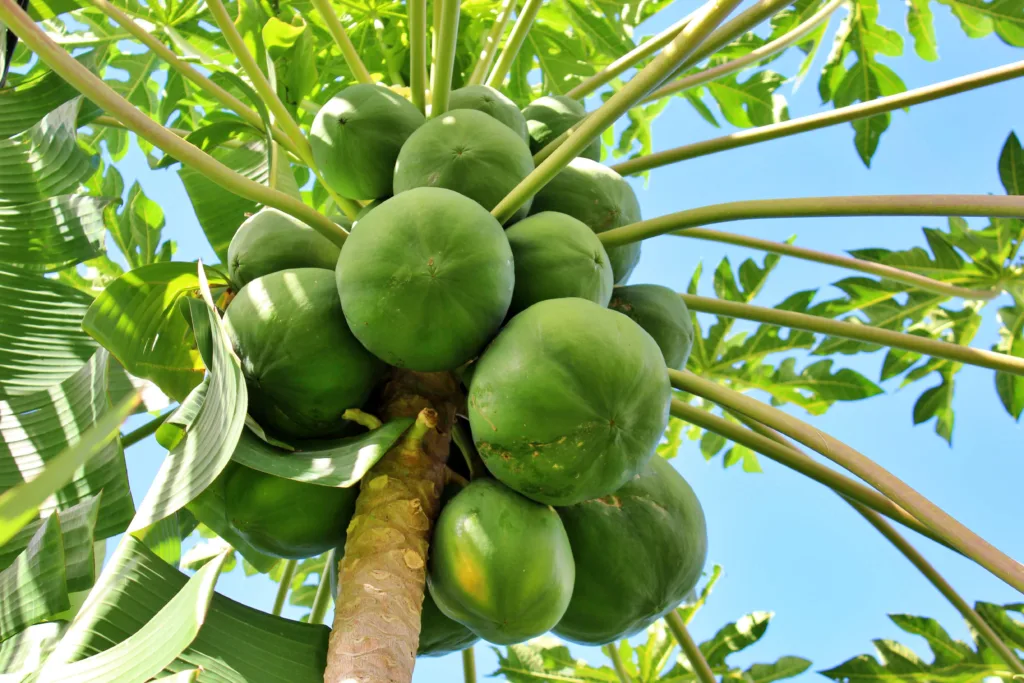Do you suffer from bloating, cramps, or other digestive issues? Eating low FODMAP foods may help reduce symptoms. But can you include papaya in your diet? Read on to find out if this delicious tropical fruit is low FODMAP and safe for your sensitive stomach.
FODMAP stands for Fermentable Oligo-, Di-, Mono-saccharides and Polyols, which are short-chain carbohydrates that are poorly absorbed in the small intestine and can cause digestive symptoms in some individuals.
What is IBS?
Irritable Bowel Syndrome (IBS) is a common gastrointestinal disorder that affects the large intestine. It is characterized by abdominal pain, cramping, bloating, gas and altered bowel habits. People with IBS may experience constipation and/or diarrhea, or a combination of both. Symptoms can range from mild to severe, and while there is no cure for IBS, there are treatments available to help manage the symptoms.
IBS is thought to be caused by a disturbance in the communication between the brain and the gut; however, the exact cause of this disturbance is unknown. Triggers for IBS can include stress, food sensitivities or allergies, hormone fluctuations, medications or other lifestyle issues. Dietary changes such as reducing fat intake or avoiding foods that trigger symptoms can help manage IBS symptoms. In some cases medications may be recommended to reduce pain and improve bowel movements.
It is important for those with IBS to work with their healthcare provider to identify triggers and develop an individualized treatment plan that works best for them. Many people with IBS find relief from symptoms through lifestyle modifications such as stress management techniques and dietary changes. If you are experiencing symptoms of IBS it is important to seek medical advice from your doctor or healthcare provider as soon as possible so that you can get an accurate diagnosis and begin managing your condition effectively.
Abdominal Pain
People with IBS often experience abdominal pain or discomfort. This pain or discomfort may be accompanied by cramping, gassiness, bloating, and changes in bowel movements. Depending on the person, the pain may be relieved after a bowel movement or it may become worse after eating certain foods.
Changes in Bowel Movements
The most common symptom of IBS is changes in bowel movements. These changes can include diarrhea, constipation, or a combination of both. Diarrhea is defined as having three or more loose stools per day whereas constipation is defined as having fewer than three bowel movements per week.
Click here to preview your posts with PRO themes ››
Other Symptoms
In addition to abdominal pain and changes in bowel movements, people with IBS may also experience other symptoms such as fatigue, nausea, vomiting, headaches, difficulty sleeping and anxiety.
Low FODMAP Foods
Low FODMAP foods are those that contain low levels of a group of carbohydrates known as fermentable oligo-saccharides, di-saccharides, mono-saccharides and polyols. These carbohydrates are referred to as FODMAPs. Consuming low FODMAP foods helps to reduce symptoms associated with digestive disorders such as irritable bowel syndrome (IBS). Common examples of low FODMAP foods include fruits such as oranges, apples, and strawberries; vegetables such as carrots, potatoes, and eggplant; grains such as quinoa, rice, and oats; proteins such as tofu and eggs; dairy products such as lactose-free milk; and nuts and seeds including almonds, walnuts, and sunflower seeds. Low FODMAP foods are important for those who suffer from digestive issues because they help to reduce the amount of fermentable carbohydrates in the diet. This helps to reduce symptoms associated with IBS including abdominal pain, bloating, gas, constipation or diarrhea.
It is important to note that not all individuals with IBS will have the same response to low FODMAP foods. It is recommended that those who suffer from digestive issues consult with their doctor or a qualified dietitian before making any changes to their diet. Additionally, it is important to ensure that one’s diet includes a variety of nutrient-dense whole foods in order to meet daily nutrient requirements.
Are Papayas Low FODMAP?
Papayas are a tropical fruit that contain many health benefits and are low in calories. They are also considered to be low FODMAP, which means they can be enjoyed by those with IBS who follow the low FODMAP diet. The low FODMAP diet is designed to help reduce symptoms of irritable bowel syndrome (IBS) by limiting certain types of carbohydrates known as fermentable oligosaccharides, disaccharides, monosaccharides, and polyols (FODMAPs).
The good news is that papayas are considered to be low in FODMAPs. This means they can be enjoyed as part of a balanced diet for those following the low FODMAP diet. Papayas contain a variety of vitamins and minerals including vitamin C, folate, potassium and magnesium, as well as dietary fibre. They also contain antioxidants which may help reduce inflammation and protect against certain diseases.
When it comes to portion size, it is important to keep in mind that eating too much of any fruit can lead to digestive discomfort due to its high sugar content. It is recommended to consume no more than one cup (150g) of papaya at a time when following the low FODMAP diet. This will help ensure you don’t overdo it on the sugar content and experience any digestive issues.
Click here to preview your posts with PRO themes ››
In conclusion, papayas are considered a low FODMAP food which makes them suitable for those following the restrictive diet for IBS relief. However, it is important to watch your portion size so that you don’t overdo it on the sugar content and experience any negative digestive side effects.

Nutrition Profile of Papayas
Papayas are an excellent source of vitamins and minerals. They are a good source of vitamin A, vitamin C, and folate. They also contain potassium, magnesium, and fiber. Papayas are low in calories and fat, making them a great choice for those looking to eat a healthy diet. Papayas are also a good source of antioxidants, which can help protect against certain diseases.
Papayas are a great way to get essential nutrients into your diet. In addition to vitamins and minerals, they contain carotenoids such as beta-carotene and lutein, which can help protect against certain types of cancer. Papayas also contain enzymes that can help with digestion and make it easier for your body to absorb other nutrients from your food.
Papayas are also rich in antioxidants, which can help protect against damage caused by free radicals that form in the body from exposure to environmental pollutants. Eating plenty of papaya may also reduce inflammation in the body, which is linked to many chronic diseases such as heart disease and diabetes.
Overall, papayas are an excellent source of vitamins and minerals that can benefit both your health and your waistline. Enjoy them fresh or cooked in salads or smoothies for a nutritious snack or meal!
Are Papayas Good for People with IBS?
Papayas can be a great addition to the diet of people with IBS. The fruit is a rich source of dietary fiber, which helps to regulate digestion and prevent constipation. It also contains enzymes that help break down proteins and carbohydrates, making it easier for the body to absorb nutrients. Papayas are also low in fat and calories, making them a suitable snack for those trying to control their weight. Additionally, the fruit is rich in vitamins and minerals, including Vitamin C, Vitamin A, potassium, and magnesium.
The high fiber content of papaya can help reduce symptoms of IBS such as abdominal pain, cramping, diarrhea, and bloating. Fiber adds bulk to stools and helps them move more quickly through the digestive tract. It also helps to slow down digestion so that food stays in the stomach longer and is more easily absorbed by the body. Eating papaya can also help keep blood sugar levels stable by slowing down the absorption of sugar into the bloodstream.
Click here to preview your posts with PRO themes ››
However, it’s important for people with IBS to remember that not all fruits may be suitable for their condition. Some fruits can trigger symptoms due to their high FODMAP content or acidic properties. It’s best to consult with a healthcare professional before adding any new food items into your diet if you have IBS. Additionally, be sure to eat papayas in moderation as too much fiber can cause digestive issues such as gas or bloating.
How to Include Papayas In a Low FODMAP Diet?
Papayas can be a delicious and nutritious addition to a low FODMAP diet. They are high in fiber, vitamins and minerals, and contain natural digestive enzymes that may help improve digestion. While the FODMAP content of papayas can vary with ripeness, they are generally considered safe to consume in moderate amounts. To include papayas in a low FODMAP diet, it is important to select ripe fruit and avoid over-consuming them.
When selecting papayas, look for ones that are mostly yellow with some green patches. The yellow color indicates ripeness, which means the fruit will be easier to digest and have a lower FODMAP content than an unripe one. When preparing papayas for consumption, remove the skin and seeds before eating. The skin and seeds contain high amounts of FODMAPs, so it is important to discard them before consuming the fruit.
When consuming papayas on a low FODMAP diet, it is important to keep portion sizes in mind. For those following the elimination phase of the diet, it is recommended to limit consumption to one cup (140 grams) of cubed papaya per sitting. For those who have completed the elimination phase and have started reintroducing foods, larger portions may be consumed as tolerated.
Including papayas in a low FODMAP diet can be beneficial as they provide essential vitamins and minerals while also helping improve digestion with their natural digestive enzymes. When selecting ripe fruit and limiting portion sizes as recommended above, papayas can be safely included in a low FODMAP diet.

Conclusion
Papaya is considered low FODMAP, as it contains only small amounts of fructose, sorbitol and mannitol. In addition, ripe papaya contains beneficial prebiotic fibers that can help to support your gut health. It is important to remember that the FODMAP content of papaya can vary depending on how ripe it is, so be sure to check the nutrition label before consuming.
Overall, if you are following a low FODMAP diet and looking for a nutritious snack or side dish, papaya may be a good option. Not only does it contain essential vitamins and minerals, but it also has potential health benefits for those with digestive issues. As always, be sure to speak with your doctor or dietitian if you have any questions or concerns about adding papaya to your diet.

